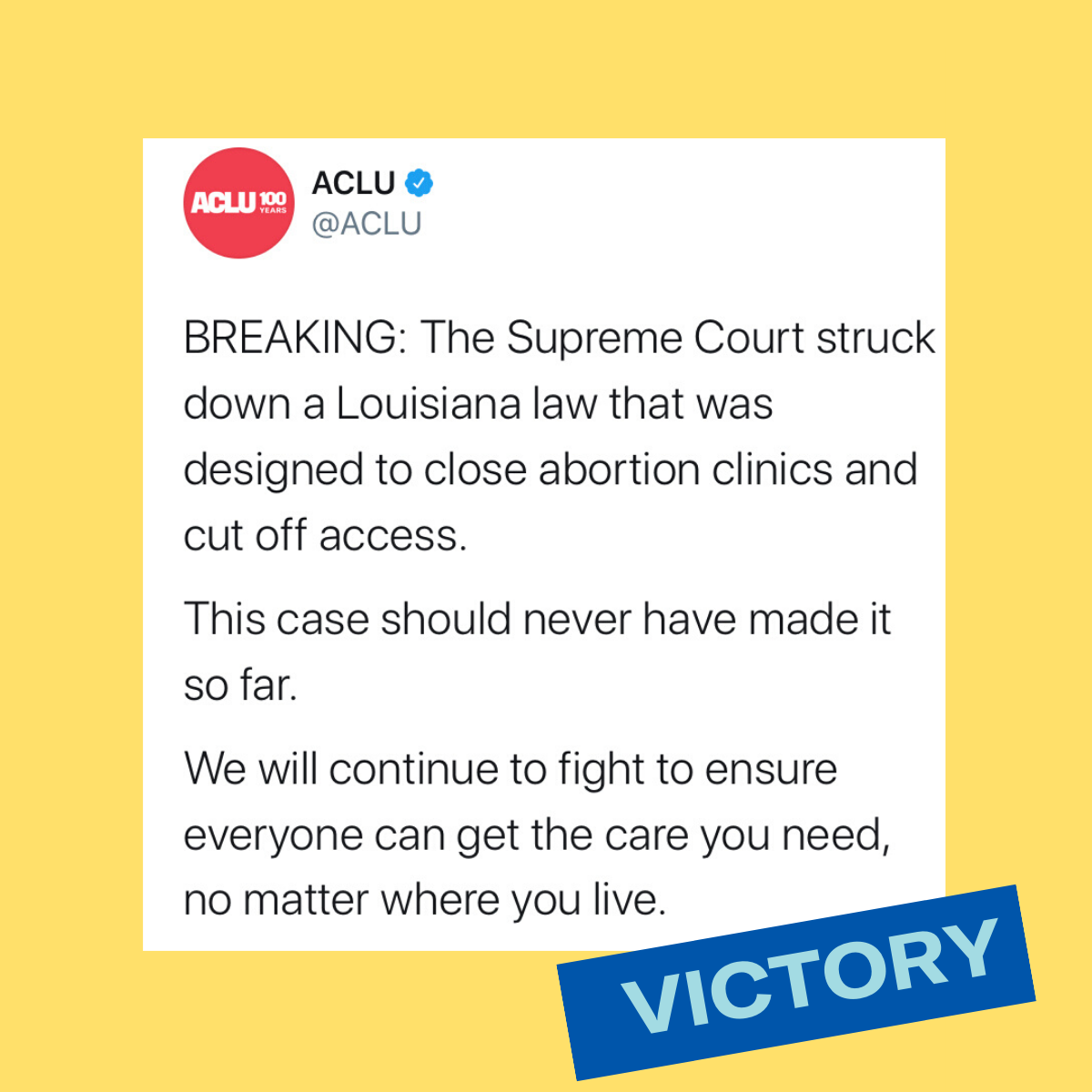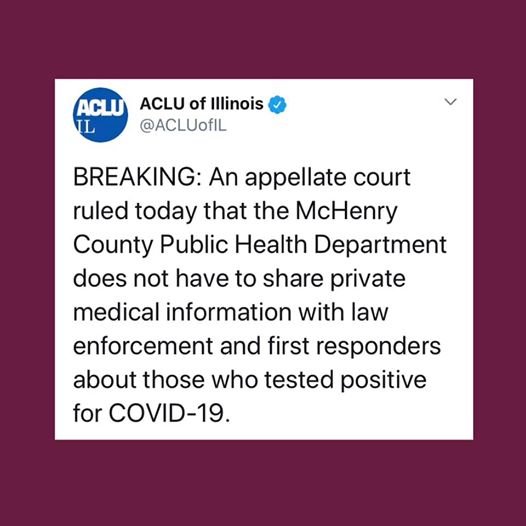This morning, the U.S. Supreme Court struck down a Louisiana law requiring abortion providers to have admitting privileges at nearby hospitals, finding that it imposed an unconstitutional restriction on access to the procedure.
The below statement can be attributed to Ameri Klafeta, Director of the Women’s and Reproductive Rights Project, ACLU of Illinois:
“In today’s decision, the Supreme Court justly rejected abortion opponents’ political maneuverings meant to test the Court’s willingness to reverse its own recent holding preserving abortion access. There should be no confusion – the hospital admitting privileges at issue in the Louisiana, just like those in the Texas law that the Court considered just a few years ago, do nothing to advance safety or quality for those seeking reproductive health care, including abortion care. The goal simply was to end access to abortion care in Louisiana, and push the Supreme Court to allow more draconian restrictions in other states.
It is comforting to know that in the face of these dangerous political gambits our Illinois legislators ensured that access to all reproductive health care, including abortion care, is a fundamental right. Illinois will not allow our residents to fall victim to some politicians’ cruel attempts to control their medical decisions. Abortion care is basic health care that is available in this state. That remains unchanged by today’s decision.”
Date
Monday, June 29, 2020 - 7:45amFeatured image

